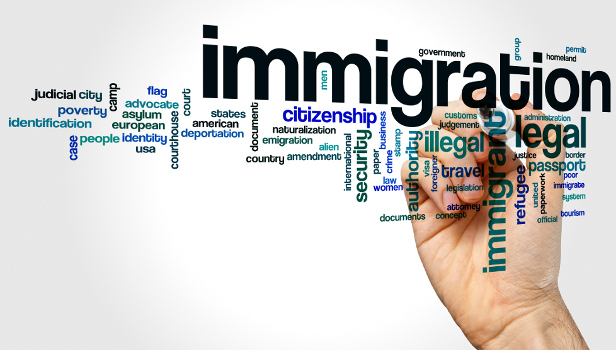
There are many different types of visas available for non-US citizens working in the United States. O’Connor & Durfield attorneys represent individuals and business professionals with all aspects of business and employment based immigration. These include, employment/ labor based non-immigrant visas, U.S. investor non-immigrant visas, NAFTA business non-immigrant classification permits, U.S. work visas / labor certification, athletes and entertainment visas, and intra-company transferee executive or management visas.
Non-Immigrant Visas
Non-immigrant visas are for temporary stays in the U.S. and typically have an expiration date.
Most non-immigrant visas fall under the following classifications:
E-1
An E-1 Visa allows nationals of qualifying Treaty Countries who undertake a substantial
amount of international trade with the United States to work legally in the United for the duration
of the E-1 Visa.
E-2
An E-2 Visa allows certain citizens of a qualifying treaty nation who are investing, or is in the
process of investing, a substantial amount of capital in a United States company. These
individuals include principal owners of the United States company or a key employee with
supervisory or executive control.
E-3
An E-3 Visa applies to Australian nationals coming to the US solely to perform services in a
specialty occupation.
TN
TN Visas apply to qualified Canadian and Mexican citizens engaging in NAFTA authorized
professional business activities in the US. The TN nonimmigrant classification permits qualified
citizens to seek temporary entry into the US to engage in business activities at a professional
level as authorized under the North American Free Trade Agreement (NAFTA).
P-1
P-1 Visas are short-term U.S. work visas that are available to outstanding athletes, athletic teams
and entertainment companies.
P-2 P-3
P-2 and P-3 visas are available to certain artists or entertainers who come to the U.S. to perform
under a reciprocal exchange program or culturally unique event in the U.S. These also include
Highly skilled, essential persons who are an integral part of the performance.
O-1
An O-1 visa is available to individuals who have a job offer in the United States and proven
extraordinary ability in areas such as science, art, education, business, or athletics.
L-1 (L-1A) (L-1B)
An L-1 Visa allows foreign companies to relocate certain qualified employees to its U.S.
subsidiary or parent company.
H-1B Visas
The H-1B visa is available to skilled professionals, technical staff, and management staff. These
typically include doctors, nurses, high-tech staff, scientists, software designers and other
professionals.

Immigrant Visas
Immigrant Visas are for non-US citizens seeking legal permanent residence and possibly US
citizenship.
EB-1
The EB-1 Visa is requested for non-US citizens who are exceptional professors and researchers.
EB-2
The EB-2 Visa is requested for non-US citizen professionals with advanced and who have an
exceptional ability in arts, sciences, or business that benefit the United States economy, cultural
or educational interests.
EB-3
The EB-3 Visa is requested for non-US citizens who are skilled workers or professionals.
EB-4
The EB-4 Visa includes ministers or other non-US citizens intending to work in a professional
capacity in a religious vocation.
EB-5
The EB5 Visa program was created in 1990 to encourage new investment capital into the United
States and to create new jobs for U.S. workers. The EB-5 program is based on our national
interest in promoting immigration for individuals that will stimulate the economy by investing
their capital in new, restructured, or expanded businesses in the United States. Unlike the E-2
non-immigrant visa category, the EB-5 immigrant visa provides the investor with a green card
and lawful permanent residence.
Labor Certification / PERM Certification
The new “PERM” Labor Certification is the first significant change to foreign labor certification
to make the certification process more efficient for employment-based immigration. Labor
Certification is the first step in the EB-2 and EB-3 preference filing process. The labor
certification application is filed with the Department of Labor and must certify that there are no
qualified US workers able, available, willing and qualified to accept the employment
opportunity. Furthermore, the Department of Labor must find that employment of the alien will
not adversely affect the wages and working conditions of US workers similarly employed.